“In the last days the mountain of the LORD’s temple will be established as the highest of the mountains; it will be exalted above the hills, and all nations will stream to it.” (Isaiah 2:2)
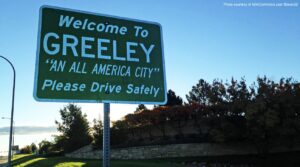
Hometown Diversity
“Miss, I forgot my house key. And my sister won’t be home from work until after midnight.” We scrambled to figure out a plan to get this Somali teen home safely from tutoring. My husband, Steve, decided to swing by the meatpacking plant on his way to taking kids home, to see if our young friend could acquire a house key from her sister on her work break.
Steve and three teens from three distinct ethnolinguistic groups sat together in the parking lot of our local meatpacking plant and waited. Each of those kids had a family member in the plant. Their families had relocated to Greeley, Colorado because the meatpacking plant would offer them employment–ASAP. They didn’t need to speak English or be literate to start supporting their families as they resettled after various long and difficult refugee journeys.
At our local Immigrant and Refugee Center of Northern Colorado, we serve more than 20 ethnolinguistic groups from around the globe. Many minority ethnic groups come to our center having fled war, persecution, and discrimination in their homelands. They come to our city for access to employment, and so that their families can thrive in community.
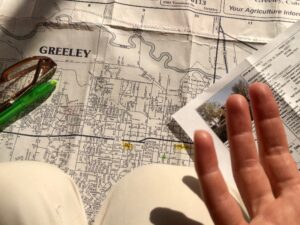
Nations Will Stream
Before moving to Greeley, Colorado in 2018, I knelt down in prayer, and with open hands asked God where He would lead us. I love the vision of Isaiah 2:2, the idea that nations will stream to the mountain of the Lord. Nations were streaming to Greeley, and I was eager to greet people from many languages unfamiliar to me: Karen, Karenni, Tigrinya, Kinyarwanda, Rohingya… Along with some I was familiar with: Arabic, Amharic, Burmese, Spanish…
Thankfully, housing prices were a little more affordable in Greeley than in other Colorado cities—after all, Greeley has a stinky reputation in this proud state known for its magnificent Rocky Mountains. There’s even an old adage, “If it smells like Greeley, it’s gonna snow.”
- Greeley’s infamous odor comes from the cattle processed at the large meatpacking plant.
- Greeley’s diversity is also credited to meatpacking.
- I have meatpacking to thank for lower housing costs and the vibrancy of our Immigrant and Refugee center.
- My resettling refugee neighbors can provide for their families because of meatpacking.
- The teens I know and love can focus on their education because their families are dedicated to making that happen—and meatpacking makes it possible.
And yet, the harsh reality is that meat processing is hard on bodies and minds, which makes upward mobility even more difficult. This taxing work significantly challenges the capacity to learn English and other job skills that could eventually move workers off the meat-cutting floor.
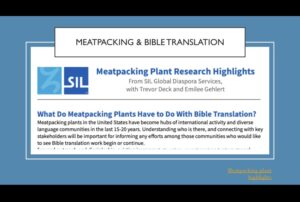
A Meatpacking Strategy
When I imagined nations streaming into our state, I never considered the human strategy behind meatpacking plants. In their research, Trevor Deck and Emilee Gehlert (2022) identified 70 key cities in the U.S. with meatpacking plants that have a high foreign-born population, report significant migrant populations, and/or intentionally recruit immigrant and refugee populations to work in their plants. They explain:
“Meatpacking plants in the United States have become hubs of international activity and diverse language communities in the last 15-20 years. Understanding who is there and connecting with key stakeholders will be important for informing any efforts among those communities who would like to see Bible Translation work begin or continue… As God moves members of these communities to a point where they’d like Bible translation (if they don’t have any), SIL has tools and connections that are available.”
Greeley, CO is one of those key cities. We see God’s powerful presence all around us—friendship and discipleship, immigrant fellowships, and a growing vision of kinship in God’s thriving family. Yet, there are language groups in our midst that still need Bible translation.
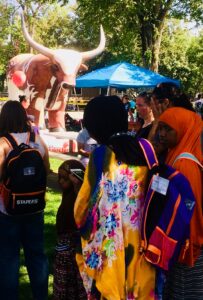
Empowered by Biblical Literacy
Our young Somali friend got home safely that night after swinging by the meatpacking plant for the house key. After failed attempts at finding other jobs, this same 17-year-old told me that she wanted to apply at the meatpacking plant when she turned 18. She knows she can get hired there, and that the hourly wage is significant. Even though she may not yet grasp how grueling the work is, she is keenly aware of how much her family has sacrificed so that she could choose a different career path. But for her, and for many in diaspora, the realities of living a better life in the U.S. are costly.
Biblical literacy is a privilege, and it’s through God’s Word that we are empowered to love our neighbors and the nations, with the hope that people from every tribe would also have access to fullness of life with Jesus. Alongside our diverse neighbors, God has strategically and lovingly invited us to call this aromatic meatpacking town our home. There are nations streaming to cities around the globe that still need access to God’s transforming Word. Where else are nations streaming? What is God lovingly inviting you into in the places you call home?
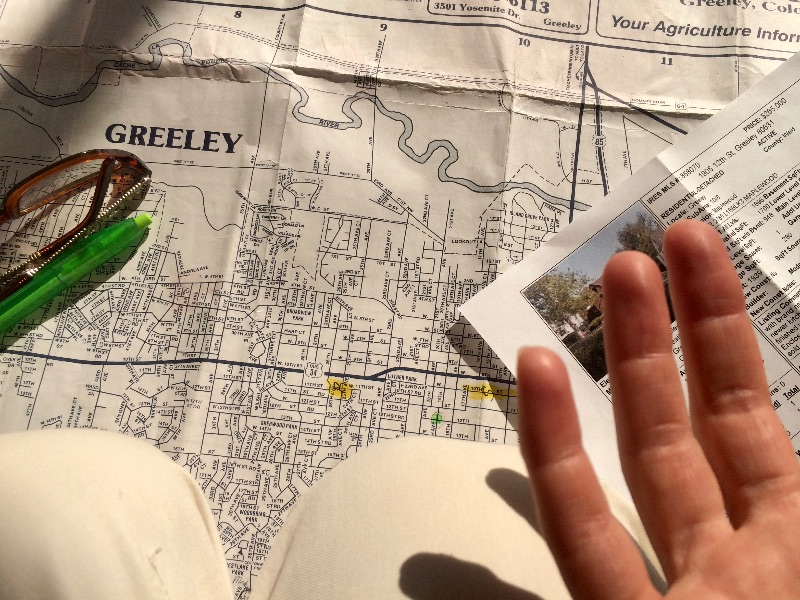
Pingback: Come and See: Glimpses of Trauma Healing at Dzaleka Refugee Camp - EMDC Blog